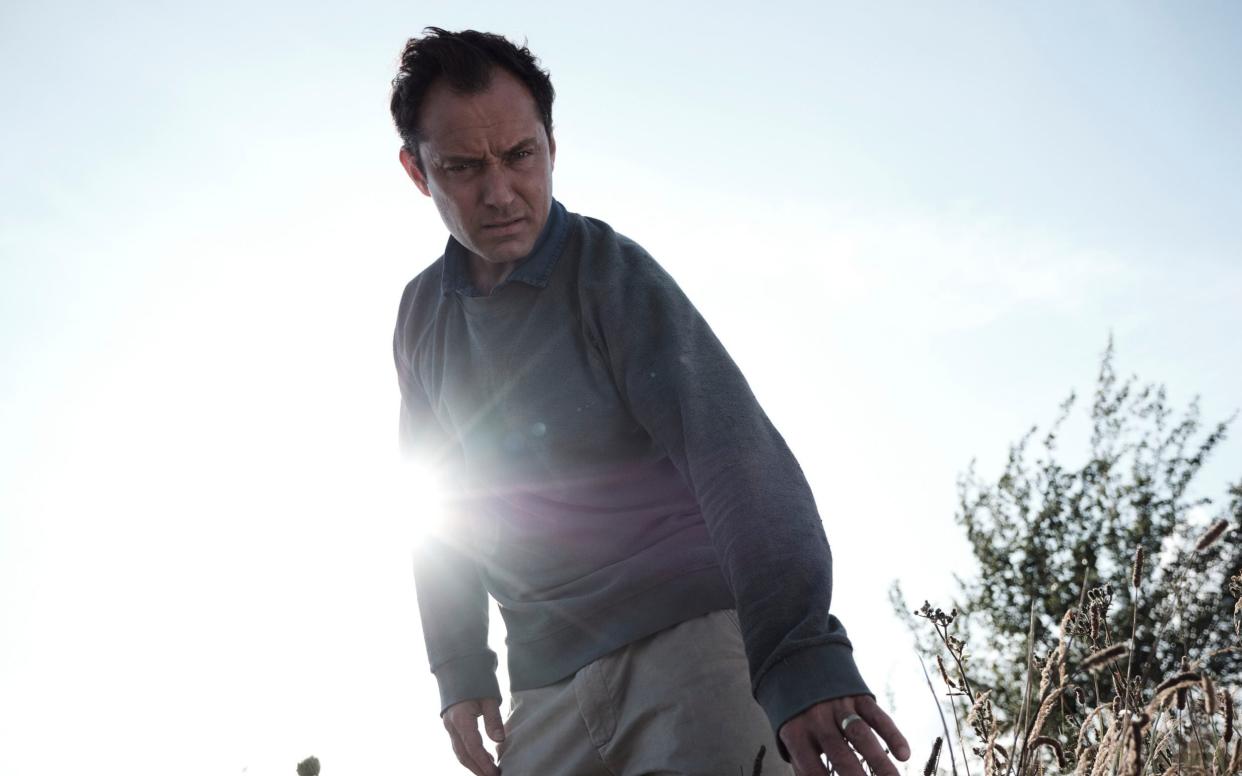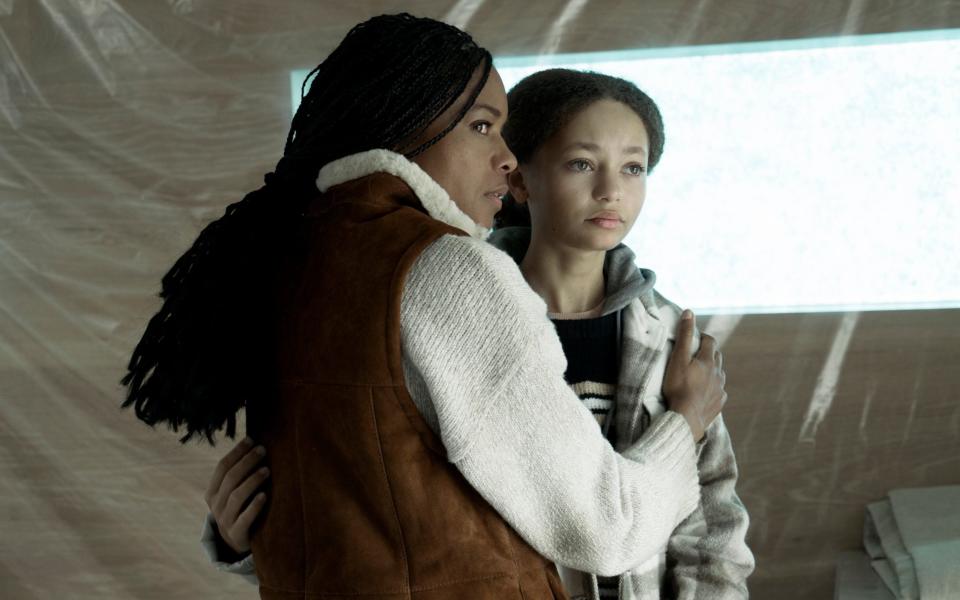The Third Day, ep 6, review: a bold and beautiful finale for a show that flirted with the hysterical

Did you even notice it? After 18 hours of madness, blood and guts, Pagan Bacchanalia and truculent yokels, the year’s wildest drama was distilled down into a tiny, barely perceptible, subtle moment of tenderness. Having hauled her daughters through a mile of freezing sea, towing them in a rowboat like a mermaid from Norse myth, Naomie Harris’s Helen lay huddled, perishing and sopping, on the floor of a cabin, clutching the blue and white plastic bag that contained the £30,000 she went to Osea Island to get. And for the briefest of moments, the plastic bag became the blue and white t-shirt worn by her six-year-old son, Nathan, who had been killed 10 years previously. Blink and you’d miss it. It was beautiful and very, very Punchdrunk.
When it was announced that Sky Atlantic, screenwriter Dennis Kelly and renowned immersive theatre specialists Punchdrunk were collaborating on a TV drama, the mind boggled. However, the most impressive thing you can say about The Third Day is that, so often, it felt like a Punchdrunk show – not just in the 12-hour live epic, Autumn, that intersected the six episodes of drama, but in the intoxicating mix of a story that melded the mythic with the mundane, and the unsettling use of incongruous set and props. A Range Rover parked on the front lawn of a grand house. A big top in an otherwise empty field. A blue and white t-shirt.
The final episode marked the reunion between the Christ-like Sam (Jude Law) and his wife, Helen, who he had long since abandoned on his hero quest on Osea. He, dressed in a dirt-smeared white suit, with gaunt features (gone was Autumn’s magnificent bird-nest beard) and wild hair, looked as if he should be headlining Glastonbury with a 12-piece indie band from Ohio. She, in sensible outdoor togs, looked like she was about to present a segment on the natterjack toad on Countryfile. The trick, as the truth unspooled, was that they were both mad with grief.
Before the inevitable axe-and-shotgun horror that ensued, as the villagers – burning torches and all – ganged up on Sam and he fought back to save his family, there was a chance to see where this had all begun. With the disappearance, and murder, of a six-year-old boy, the father who sank into guilt-ridden mania and the mother who had no choice but to cauterise her pain and raise their two daughters. Along with Sam, we learnt the shocking truth – that the boy who Sam had been reunited with was not his son. As viewers we were as guilty as Sam in wanting to believe that Nathan was still alive, despite the boy being the wrong age and having the wrong colour skin.

Law, slowly shedding those boyish good looks, has become a very fine actor. Watching Sam’s face as Helen destroyed his saviour fantasy was heartbreaking, as if we could see his brain catch up with the truth while desperately trying to mask it with the lie. We saw, in a flash, Sam’s moment of clarity. “You lost my son,” said Helen. “He went missing,” said Sam, like a child. But he had lost him and here was losing him all over again. Law promptly shut Sam’s lucidness and soon his pallid face was streaked with villagers’ blood, like a weeping Madonna.
There has been much to love about this bold series. The initial Wicker Man-inspired episodes, Summer, with Sam traversing the island in a paranoid haze, to Punchdrunk’s 12-hour epic live show, which mesmerised all who saw it, as Law played out a dreadful, one-man passion play. The later episodes, Winter, were slower, steelier, infused with a modern-day horror film nausea. You just knew someone would end up with an axe, swung from nowhere, buried in their chest. If it felt clichéd at times, that was surely deliberate, playing up, as it so often did, to archetypes and fairy tales.
From the moment Sam set foot on Osea and eyed that American Werewolf in London-esque pub, you figured someone would end up being burnt alive in a giant wicker trout. However, a show that flirted with the hysterical at times, dialled it down at the last minute, leaving us, instead, with a grieving mother clutching the t-shirt of the child she lost, a child who, 10 years on, she has accepted is truly gone.


